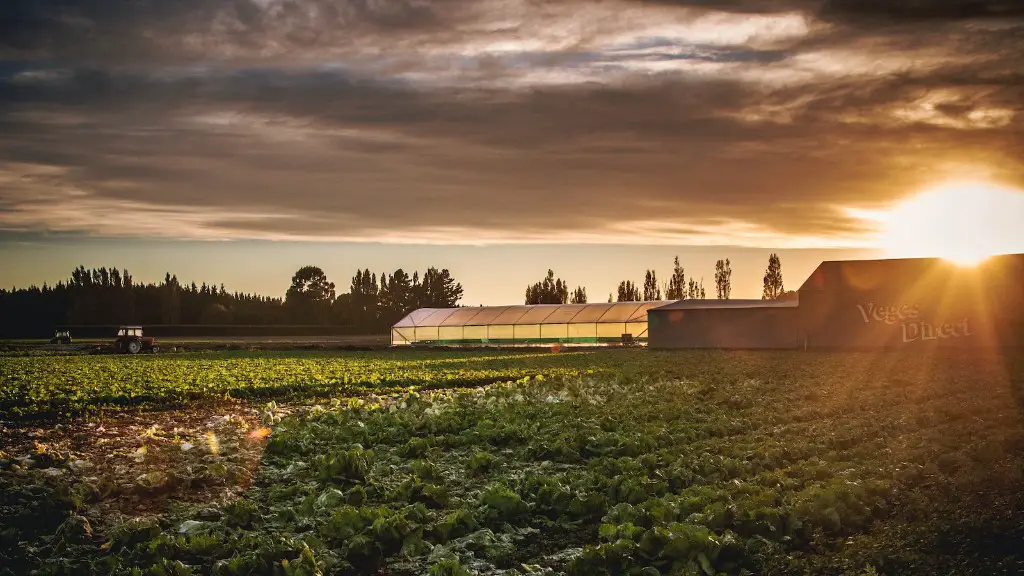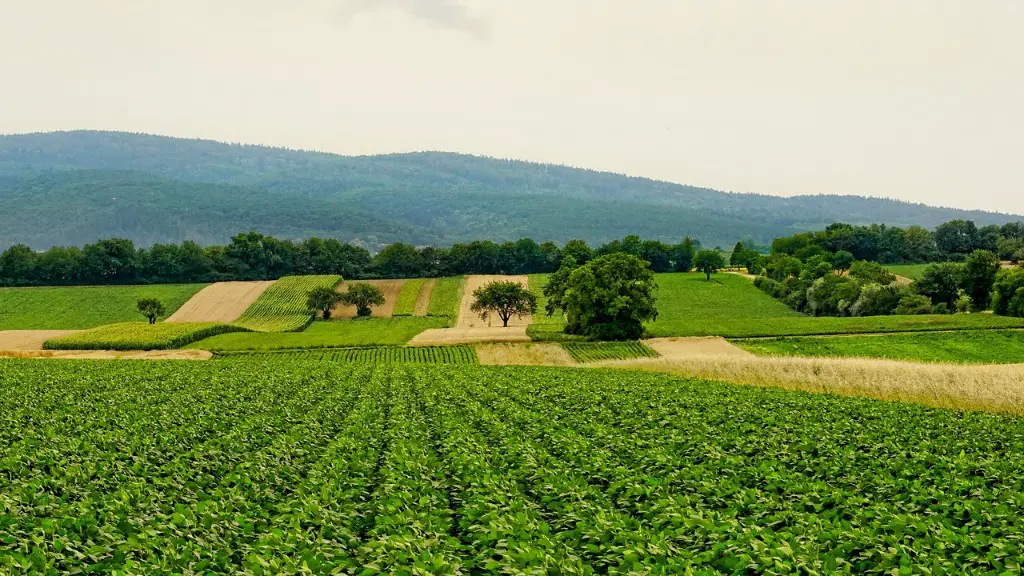In a world where the majority of the population lives in cities and the farming industry is becoming increasingly mechanized, it is more important than ever to encourage young people to take an interest in agriculture. Here are a few ways to motivate youth interest in agriculture:
1. Organize farm visits and tours.Urban dwellers often have little exposure to farming and where their food comes from. Showing them the process firsthand can be a powerful motivator.
2. Connect agriculture to their interests. Many young people are interested in environmentalism and animal welfare. You can show them how agriculture can be a force for good in these areas.
3. Share stories about the satisfaction of working with the land. Farming can be a very rewarding career, both financially and emotionally. Hearing stories from farmers themselves can be inspirational.
4. Offer opportunities for hands-on experience. Many young people are interested in getting their hands dirty and seeing the results of their labors. Offering internships or apprenticeships on farms is a great way to spark their interest.
5. Challenge negative stereotypes about farming. Unfortunately, there are many misconceptions about farming amongst young people. dispel these myths and show them that farming can be a modern, sustainable, and exciting
1. Agricultural organizations can provide youth with opportunities to learn about and experience agriculture first-hand.
2. FFA and 4-H clubs are excellent examples of ways that young people can get involved in agriculture and develop a lifelong interest in the industry.
3. Youth can also be motivated to learn about and pursue careers in agriculture through educational initiatives and programs that focus on the industry.
4. Finally, parents and other adults who are involved in agriculture can serve as positive role models and mentors for young people, helping to foster a love and appreciation for the industry in the next generation.
What should the local level do to encourage the youth towards agriculture in points?
The agriculture sector is often seen as an unattractive option for young people, due to its perceived low profitability and lack of dynamism. However, this perception can be changed by making the sector more profitable and competitive, through the use of innovative technologies and improved infrastructure. This will make it more attractive to young people, and help to upgrade farm operations.
The findings of this study suggest that farmers perceive economic and environmental motivations as equally important. However, the relevance of social motivations is less uniform, and agricultural collectives may benefit from farmers’ social commitment to cooperate.
How do kids get involved in agriculture
Farm to school programs are a great way to get kids interested in healthy eating and where their food comes from. There are many different ways to incorporate local farm products into the school day, from incorporating them into meals and snacks to growing school gardens and taste-testing local produce. Field trips to local farms or community gardens are also a great way to learn about where food comes from and how it is grown. Inviting farmers or chefs into the classroom is another great way to teach kids about healthy eating and where their food comes from.
Today’s students are used to a more fast-paced, engaging learning environment than in years past. To keep them interested in agriculture education, try using videos, online activities, and group work in addition to the textbook. By varying the focus, you’ll help keep them engaged. Hands-on learning aids like animal models and bovine and swine skills simulators are also great ways to get students involved and excited about learning.
How can we attract rural youth in agriculture?
The rural youth are the future of agricultural development. They need to be attracted and empowered to take up this important sector. Generating employment and a regular flow of income stream for the rural youth will help them in setting up network groups to take up resource and capital intensive activities like value addition, processing and marketing.
Smart farms are designed to increase the quality of agricultural products whilst optimizing human intervention. By using technology to monitor a variety of factors, smart farms can take action to improve conditions without the need for constant supervision. This allows farmers to make informed decisions without having to be present at the farm all the time, making the most efficient use of their time and resources.
How do you motivate farm workers?
It’s no secret that farming can be a tough, demanding job. But it’s important to remember that behind every farm is a team of hardworking men and women who play an essential role in keeping the operation running smoothly.
As a farm manager, it’s your responsibility to motivate your employees and create a positive work environment. Respect is key in developing a successful farm culture – remember, your employees are the backbone of your business.
By creating a positive, respectful work environment, you’ll not only retain your best workers, but you’ll also attract new talent to your farm. A motivated, dedicated workforce is essential to the success of any farm.
Climate, soil type, irrigation, technology, and population density are all important factors that influence agriculture. The type of climate can dictate what crops can be grown, and the soil type can dictate how well those crops grow. Irrigation and technology can also play a big role in how successful a farm is, as they can help with water and pest management. And finally, population density can also impact agriculture, as a high population density can lead to more demand for food.
Why agriculture is important for youth
The future of development rests on agriculture’s shoulders. The sector is up to four times more effective than other sectors in reducing poverty, and it plays a critical role in providing food and improving livelihoods. With the world’s population set to grow, agriculture will be under even more pressure to produce nutritious food and support people’s livelihoods. It is clear that agriculture matters to the future of development.
There are several reasons why engaging youth in agriculture is critical to the strength of local food systems. First, the youth population is booming, and there will be an increasing demand for food as these young people mature. Second, agriculture provides gainful employment opportunities for youth, and this can help to reduce poverty and hunger. Third, engaging youth in agriculture can help to revive traditional knowledge and practices that are essential for sustainable food production. Finally, by engaging youth in agriculture, we can ensure that the sector continues to grow and prosper, providing food for our ever-growing population.
Why do we need youth in agriculture?
There is no question that agriculture and rural development are key factors in driving rural out-migration to urban areas. The agricultural sector needs to engage youth in order to increase global food production and stabilize growth. In doing so, agricultural transformation can help balance out-migration from rural areas.
Hosting or volunteering at agriculture education events is a great way to engage with the public and promote farming. These events can be used to educate people about the importance of agriculture, the products produced on farms, and the challenges farmers face. They can also be used to promote and sell farm products, as well as to raise awareness of agricultural issues among policy makers.
How can you help promote agriculture
There are different priority sectors that can enhance agriculture sector stability. Firstly, encourage investment in agriculture that promotes area-based development. This will lead to increased productivity and sustainability. Secondly, give priority to investments that can increase and sustain productivity. These investments may include irrigation systems and efficient transport infrastructure.
In order to keep students engaged in 2022, educators will need to start with a warm-up. This can be done through using smartphones and tech as tools, testing students regularly, and using self-paced work. Brainstorming, group discussions, and reflections can also be used to engage students. Finally, making use of “dead time” can also be helpful in keeping students engaged.
How do you empower rural youth?
dear sir
empowerment of rural youth is the key to a bright future. various initiatives should be taken to skill and upskill them so that they are equipped to take on the challenges of the modern world. focus should also be on making the workforce digitally smart so that they can take advantage of the opportunities available in the digital economy.
It’s worrying that young Filipinos are less and less interested in the agriculture industry. Farmers are vital for feeding our nation but they’re often underpaid and underappreciated. The average age for Filipino farmers is between 57 and 59 years old, which means we need to encourage more young people to get into farming to ensure food security in the years to come. One way to do this would be to improve working conditions and pay for farmers, to show that we value their contribution to society.
Conclusion
There are a few ways of motivating youth interest in agriculture:
1. through educational initiatives that show them the importance and potential of agriculture;
2. by providing opportunities for them to get involved in agriculture through internships, volunteering, or working on a farm; and
3. by engaging them in events and activities related to agriculture.
There are many ways of motivating youth interest in agriculture. Some ways include providing financial incentives, such as scholarships and grants, as well as making agriculture more visible and accessible to youth. By doing so, youth will be able to see the importance and relevance of agriculture in their own lives and be more likely to pursue careers in the field.





